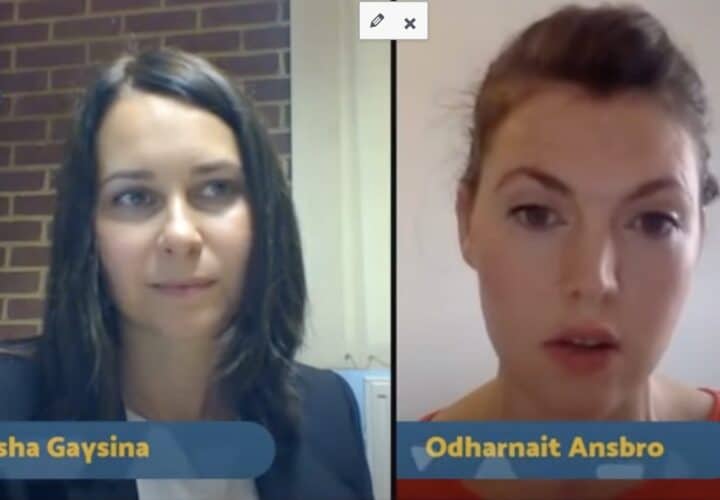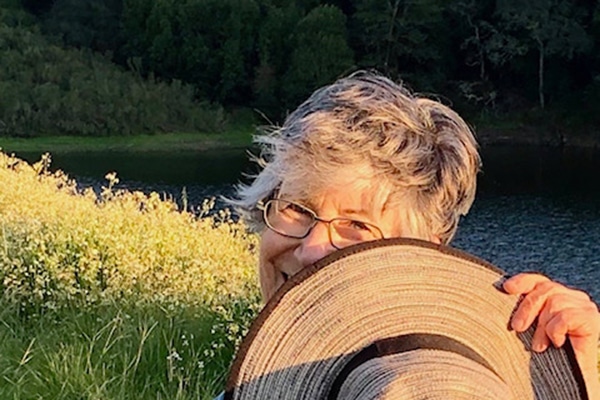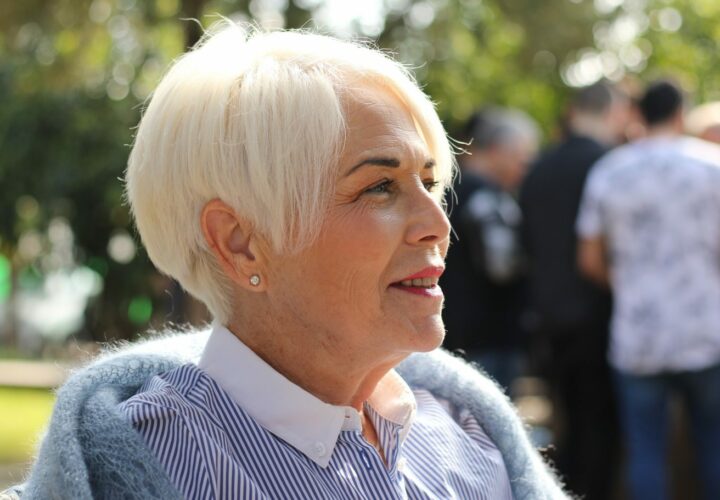Social isolation increases the risk of developing dementia, but many older adults struggle to meet new people. Social scientist Kasley Killam shares some advice that can help you make new connections — and in so doing, help modify this risk factor.
About one in twenty Americans report feeling isolated or lonely very often. These feelings, as scientists have found, aren’t innocuous: People who experience social isolation and loneliness have a higher risk of developing depression and anxiety. In addition, they also have a 40 percent increased risk of developing dementia. Scientists aren’t sure why this is the case — but people who are isolated or lonely often have multiple other risk factors for dementia which might explain part of the link. The good news is that this risk factor may be something we can change.
The challenge though, according to Kasley Killam, a social scientist who studies social health and who wrote The Art and Science of Connection, is that it becomes harder to make friends as we grow older.
“One of the most common barriers people share with me is not how to make friends as adults, it’s when,” Killam told Being Patient. “Many people feel too busy to branch out and invest the time and energy … needed to form and deepen new friendships.”
Here is some actionable advice to help you meet new people, make new friends, and feel less isolated.
1. Do what you love with others
Build friendships with people who have shared common interests.
“Whether it’s painting, playing pickleball, or reading, join a local club or take a local class to meet new people and develop friendships centered around your hobby,” Killam recommends.
The bonus is that many of the activities that involve either physical or mental exercise have added benefits; not only can group activities involving mental exercise help form friendships, they can also improve memory and help prevent dementia. And physical exercise has been shown to help protect the brain from dementia. Here are some websites and resources that can help you find your community:
- Facebook Groups – Search using keywords like your city and hobby, for example pickleball in Miami.
- Elder Orphans – A Facebook group specifically for people over 55 living without a spouse, partner, or children.
- Meetup
- EventBrite
- Your local newspaper
- Your city or town council’s website
- Community boards in your building, community center, or gym (or online, i.e. NextDoor or your town’s Facebook group)
- Groups and clubs advertised at the local library or independent bookstore
2. Volunteering for a cause you care about
Killam suggests looking for something that you care about and start volunteering. For example, if you love the great outdoors, you could volunteer at a local nature preserve. If you or a loved one has been affected by an illness, it can be rewarding to volunteer with patient groups or charities.
“Volunteering is a great way to connect with your community, stay active, and cultivate a sense of purpose — all of which contribute to healthy aging,” Killam said.
Older adults who volunteer, compared to those who don’t, are more likely to be physically active and also less likely to develop problems with their mental health.
3. Finding a third place
When people are younger, it is much easier to meet friends, especially as we see new people at school and university. But as we age, there are fewer places to be around new groups of people.
While social scientists have found fewer so-called “third places” in communities today — somewhere outside the home and the workplace where people can go, hang out, and meet new people — many places still have third places where people can meet others in their community at little or no cost. These include:
- Local libraries
- Parks
- Community centers
- Cafes
- Community gardens
- Places of worship
4. Reconnect with old friends and family
With technology at the fingertips, it has never been easier to chat with someone worldwide.
Marisa Franco, a clinical psychologist and friendship expert, told the Washington Post that reconnecting with friends requires action, and it isn’t always easy. The stresses of everyday life, like family or financial problems, for starters, lead to more social withdrawal, which can make people more self-conscious about reaching out.
“Loneliness can induce self-doubt, which can make us think people dislike us,” she said, making you less likely to reach out to a friend you haven’t seen or talked to for a while. But managing these social worries and taking active steps to rekindle friendships will make it easier to reconnect with others in the long run. “Social interaction is a muscle, and with less practice, we may feel like our skills have withered,” Franco said.
5. Prioritize your social health
According to Killam, social health should be prioritized because “connection is as important as exercise, nutrition, and sleep.”
Many people change their daily routine to get their steps in or cut unhealthy foods out of their diet to benefit their physical and mental health. In the same way, Killam said that “we have to proactively seek opportunities to meet new people.”






Interesting to learn about and confirm issues being addressed regarding Alzheimer’s.
Thank you for being here, Turner!